Buy 2-Day Comprehensive Training -Applied Neuroscience for Brain Change in the Treatment of Trauma, Anxiety and Stress Disorders – Melanie Greenberg Course at GBesy. We actively participate in Groupbuys and are committed to sharing knowledge with a wider audience. Rest assured, the quality of our courses matches that of the original sale page. If you prefer, you can also buy directly from the sale page at the full price (the SALEPAGE link is directly provided in the post).
2-Day Comprehensive Training -Applied Neuroscience for Brain Change in the Treatment of Trauma, Anxiety and Stress Disorders by Melanie Greenberg,
Salepage link: At HERE. Archive:
- Faculty:
- Melanie Greenberg
- Duration:
- 12 Hours 10 Minutes
- Format:
- Audio and Video
- Copyright:
- Jul 12, 2018
Description
This training program will help you master applying neuroscience in your clinical practice – transforming clients’ lives and improving your clinical skills.
Few trainings can offer you the following taught by skilled trainer and clinician, Melanie Greenberg, PhD:
- Apply proven brain-based and mindfulness strategies for treating anxiety, GAD, depression, PTSD and help clients handle major life events and chronic stressors
- Teach clients stress resilience skills like positive focus, growth mindset, engaging mind and body, and mental toughness
- Motivate clients and calm the brain’s stress response using the power of neuroplasticity
- Increase client engagement by focusing on changing the brain not just reducing symptoms
Advances in neuroscience and health psychology, positive psychology, and mindful self-compassion provide us with new tools to energize, strengthen, and update our approach to therapy.
Melanie began incorporating these brain- and strengths-based techniques 5 years ago and they have transformed her practice – making therapy more dynamic and interesting and creating more hopeful, engaged, and empowered clients.
When clients understand that they can actually rewire their brains by practicing new ways of thinking and behaving, they feel less stigmatized and stuck and more motivated to tolerate the discomfort in order to change. With these new techniques, we can help clients overcome helplessness, avoidance, and rigid negative self-views and instead develop a growth mindset that helps them overcome the constraints of the past and rebuild their inner and outer worlds for increased happiness and success.
Handouts
| Manual – Applied Neuroscience for Brain Change (16.30 MB) | 161 Pages | Available after Purchase |
Outline
Using Neuroscience in Treatment of Stress and Trauma
- Positives:
- Science gives authority, evidence, de-stigmatizes mental health problems
- Increased motivation and hope for change
- Concerns:
- Oversimplification, unrealistic expectations, changing state of science, see self as damaged or different
The Promise of Neuroplasticity
- Describe neuroplasticity in everyday language
- Therapy is about creating a new, more resilient brain
- We are changing beings – don’t have to be stuck in rigid views of self
- Teach brain to be less reactive to stress and triggers
- “Rewiring” as a metaphor for change
- Changing “raw,” unprocessed memories to organized narratives
The Brain’s Stress Response
- Historical view – Hans Selye
- The brain’s stress response “fight, flight, freeze”
- The triune brain – reptilian, mammalian, human
- The amygdala and the prefrontal cortex
- How the amygdala “hijacks” the brain into emergency mode
How the Stress Response is Spread Throughout the Body
- Neurotransmitters – Epinephrine, norepinephrine and cortisol
- The HPA axis and role of cortisol
- The sympathetic and parasympathetic nervous systems
- The dorsovagal “freeze” response to unavoidable threat
The Upside and Downside of Stress
- Increased motivation and engagement – “flow”state
- Can create mental toughness and resilience to future stressors
- Inflammatory response to chronic stress
- Stress and health risk behaviors (excess alcohol use, smoking, overeating etc)
- Stress and cellular aging (telomeres)
Traumas – Effects on the Brain
- Cortisol attacks the hippocampus – center of narrative memory
- Amygdala response increases in strength
- Impaired anterior cingulate cortex (ACC) and prefrontal cortical function
- Cortisol halts production of BDNF – fewer new brain cells formed
- Link to depression, anxiety disorders, PTSD
- Cognitive rigidity and inability to take in new information
- Changes in sense of self and dissociation
Long-Term Impact of Adverse Childhood Experiences (ACEs)
- The ACE Study (Kaiser and the CDC)
- Addictive and unhealthy ways of managing anxiety & negative emotions
- Disease, mental health issues, behavioral problems, PTSD
Explaining Neuroscience Concepts to Clients
- Use drawings and images
- Individualize to the type of difficulty (e.g., disengaged vs reactive – different brain areas)
- Redirect vs eliminate
- Help client label & recognize when happening (e.g., freeze, flooding, negative thinking, rigidity, impulsivity)
- Find coping strategies for each type of brain difficulty
Stress-Proofing the Brain – Overview
- Calming the amygdala – Grounding, mindfulness, self-compassion, perceiving control
- Moving forward with the prefrontal cortex – Cognitive reappraisal, priming positive mindsets and, growth focus, health psychology tools
Grounding Strategies for Clients with Trauma or Attachment Injuries
- Yoga, relaxation, breathing, present-moment focus, soothing with the senses, pets, drawing, gardening, walking
- Mental imagery – safe place, boundaries, energetic, times they felt strong/competent
- Left-brain strategies – task focus and engagement
Mindfulness Strategies
- Qualities of mindfulness states – open, nonjudgmental, fluid, deliberate,
- Observing and accepting inner experience (thoughts, feelings, sensations)
- Using the senses to self-regulate
- De-fusing from negative thoughts and self-images
- How mindfulness changes the brain
- Mindfulness practices – breathing, watching thoughts, urge surfing, open awareness
- Application to anxiety, depression, addictions, PTSD
Self-Compassion Strategies
- Self-kindness, common humanity, focus on unmet needs
- Application to depression, anxiety, stress-management, trauma, insecure attachment
- Link to Schema Therapy – healthy adult mode
- Practices – Metta meditation, soften, soothe and allow, dialogues with inner critic
Cognitive Strategies
- How stress and anxiety narrow attention, create cognitive rigidity
- Depression and negative thinking
- PTSD and internalized negative appraisals (helpless, unworthy, unsafe etc.)
- Worry and rumination cycles – link to prefrontal cortex and default mode network
- Why thought suppression doesn’t work
- De-catastrophizing and probability estimation
- Exposure and tolerating negative thoughts
- Using metaphors (monsters on the boat, bouncy ball underwater)
Creating Positive States of Mind to Counter Stress
- How our brains are wired to the negative
- Positive emotions can promote physiological recovery from anxiety and fear
- Reappraising anxiety as excitement
- Gratitude diaries
- Commitment, control, and challenge; growth mindset
Living Healthy in the Face of Stress
- Sleep disturbance – behavioral strategies
- Healthy coping strategies – exercise, meditation, yoga
- Dealing with emotional eating
Faculty
Melanie Greenberg, PhD Related seminars and products: 3
Melanie Greenberg, PhD, is a practicing psychologist, author, speaker, and executive coach with more than 20 years of professional experience. She has an active practice in Mill Valley, CA where she sees individuals and couples, teens and adults. Originally from South Africa, Melanie has a passion for psychological growth and healing. She loves to challenge, inspire and motivate. Melanie is the author of The Stress-Proof Brain (New Harbinger, 2017) – an Amazon bestseller in neuropsychology, stress-management, and health. She writes the popular Mindful Self-Express blog for Psychology Today (8 million page views) and has a substantial social media following. Melanie is a former professor in the clinical psychology Doctoral Program at Alliant International University, San Diego. She has delivered talks and workshops to national and international audiences, businesses, nonprofits, and professional organizations, including The American Psychological Association, Wisconsin Psychological Association, Society of Behavioral Medicine, and The Bay Club. She has also published more than 50 research articles and scholarly products. A popular media expert, she has been featured on CNN, Forbes, Inc., Business Insider, BBC radio, ABC News, Yahoo, AOL, and Lifehacker, as well as in Self, Redbook, Women’s Health, Men’s Health, Fitness Magazine and the Huffington Post. She has also been featured on radio shows and numerous podcasts. With almost 50,000 followers, she was named one of the Top Psychologists to follow on Twitter by The British Psychological Society. www.drmelaniegreenberg.com
Speaker Disclosure:
Financial: Melanie Greenberg is in private practice. She is an author for New Harbinger Publications and Psychology Today and receives royalties. Dr. Greenberg receives a honorarium from the Community Institute for Psychotherapy and National Charity League. She receives a speaking honorarium from PESI, Inc.
Non-financial: Melanie Greenberg is a member of the American Psychological Association; and California Psychological Association.
Buy the 2-Day Comprehensive Training -Applied Neuroscience for Brain Change in the Treatment of Trauma, Anxiety and Stress Disorders – Melanie Greenberg course at the best price at GBesy.. After your purchase, you will get access to the downloads page. You can download all the files associated in your order at here and we will also send a download notification email via your mail.
Unlock your full potential with 2-Day Comprehensive Training -Applied Neuroscience for Brain Change in the Treatment of Trauma, Anxiety and Stress Disorders – Melanie Greenberg courses. our courses are designed to help you excel.
Why wait? Take the first step towards greatness by purchasing 2-Day Comprehensive Training -Applied Neuroscience for Brain Change in the Treatment of Trauma, Anxiety and Stress Disorders – Melanie Greenberg courses today. We offer a seamless and secure purchasing experience, ensuring your peace of mind. With our trusted payment gateways, Stripe and PayPal, you can confidently complete your transaction knowing that your financial information is protected.
Stripe, known for its robust security measures, provides a safe and reliable payment process. With its encrypted technology, your sensitive data remains confidential throughout the transaction. Rest assured that your purchase is protected.
PayPal, a globally recognized payment platform, offers an additional layer of security. With its buyer protection program, you can feel confident in your purchase. PayPal ensures that your financial details are safeguarded, allowing you to focus on your learning journey.
Is it secure? to Use of?
- Your identity is completely confidential. We do not share your information with anyone. So it is absolutely safe to buy the 2-Day Comprehensive Training -Applied Neuroscience for Brain Change in the Treatment of Trauma, Anxiety and Stress Disorders – Melanie Greenberg course.
- 100% Safe Checkout Privateness coverage
- Communication and encryption of sensitive knowledge
- All card numbers are encrypted using AES at relaxation-256 and transmitting card numbers runs in a separate internet hosting atmosphere, and doesn’t share or save any data.
How can this course be delivered?
- After your successful payment this “2-Day Comprehensive Training -Applied Neuroscience for Brain Change in the Treatment of Trauma, Anxiety and Stress Disorders – Melanie Greenberg course”, Most of the products will come to you immediately. But for some products were posted for offer. Please wait for our response, it might take a few hours due to the time zone difference.
- If this happens, please wait. The technical department will process the link shortly after. You will receive notifications directly by e-mail. We appreciate your wait.
What Shipping Methods Are Available?
- You will receive a download link in the invoice or YOUR ACCOUNT.
- The course link always exists. use your account to login and download the 2-Day Comprehensive Training -Applied Neuroscience for Brain Change in the Treatment of Trauma, Anxiety and Stress Disorders – Melanie Greenberg course whenever you need.
- You only need to visit a single link, and you can get all the 2-Day Comprehensive Training -Applied Neuroscience for Brain Change in the Treatment of Trauma, Anxiety and Stress Disorders – Melanie Greenberg course content at once.
- You can do your learning online. You can be downloaded for better results and can study anywhere on any device. Make sure your system does not sleep during the download.
How Do I Track Order?
- We always notice the status of your order immediately after your payment. After 7 days if there is no download link, the system will automatically complete your money.
- We love to hear from you. Please don’t hesitate to email us with any comments, questions and suggestions.
![GBesy [GB] GBesy [GB]](https://www.gbesy.com/wp-content/uploads/2023/05/gbesy-Logo-full-100.png)
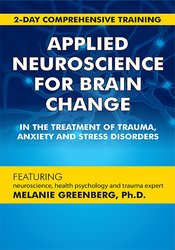
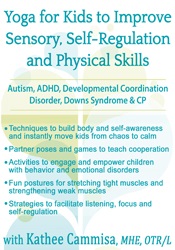

 Purchase this course you will earn
Purchase this course you will earn 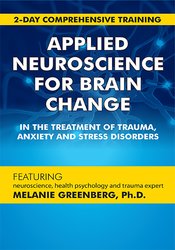
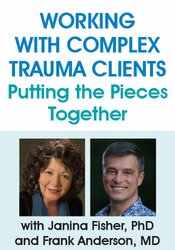
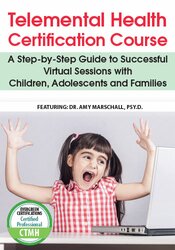
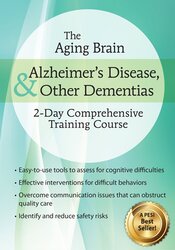
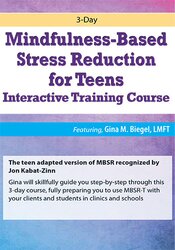
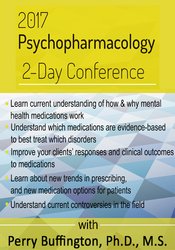
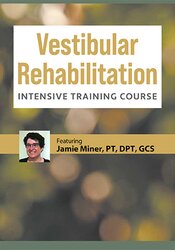
Reviews
There are no reviews yet.